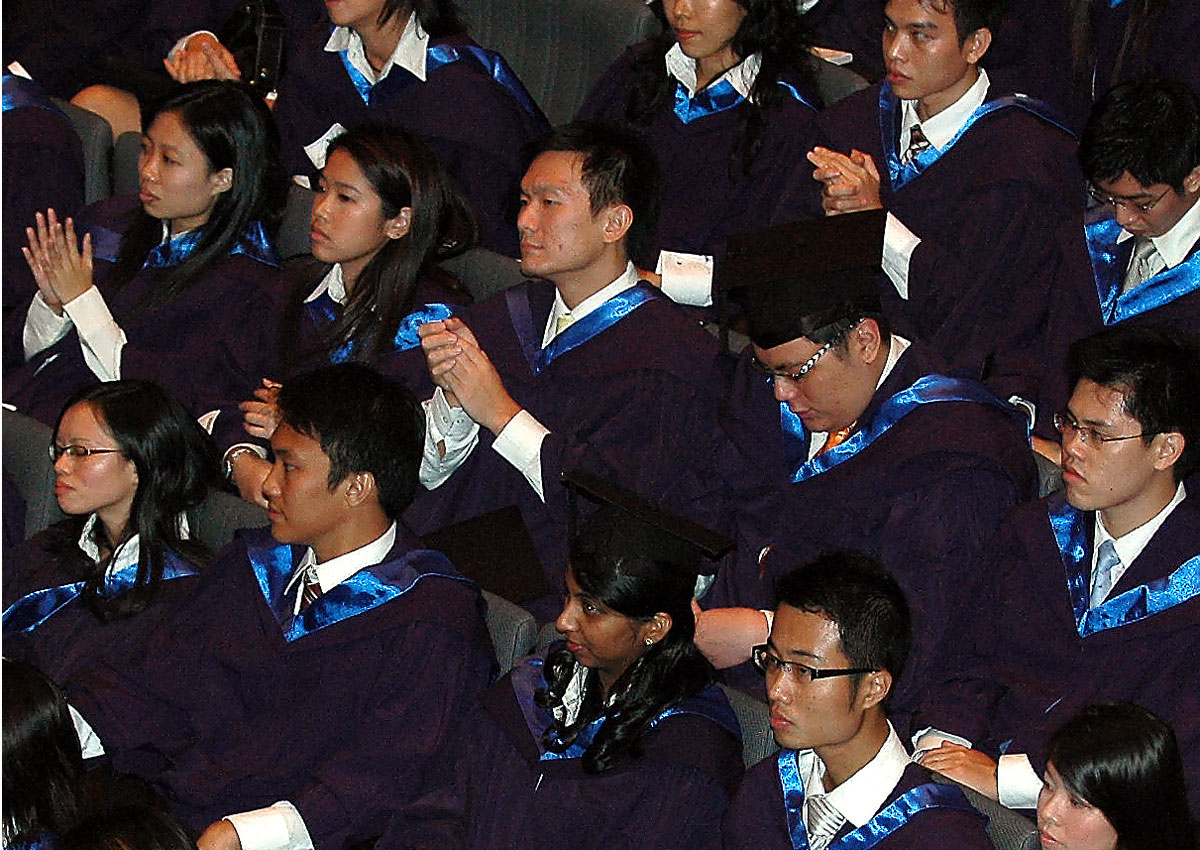While the National University of Singapore (NUS) law school’s honours policy revision will heighten the competition for Singapore students from British law schools seeking jobs here, the move is unlikely to affect law firms’ hiring policies.
It is estimated that there are now more than 950 students across 19 British universities who can potentially qualify for the Singapore Bar, according to the London-based United Kingdom Singapore Law Students’ Society (UKSLSS).
NUS Law School announced on Monday that it will double the number of first class honours degrees to 10 per cent of each cohort and raise the numbers given second class (upper) honours from 50 per cent to between 65 and 68 per cent.
“The move in a way ‘ups the ante’ for the competing Singaporean law grads from the UK,” said Rajah & Tann partner Paul Tan.
He praised the NUS Law School’s move to increase the numbers, given the higher number of first class honours given out by peer institutions like Oxford and Cambridge.
UKSLSS president Aakash Sardana called the decision “equitable, principled and sound,” adding: “This change does not do much to prosper or harm either group’s employment prospects. We look forward to fair competition with Singapore law school graduates.
“Employers have proven themselves to be sensitive to and competent at recognising different assessment standards and methods, be it across universities or jurisdiction.”
Mr Aakash noted that degree classifications “are no longer a trump card in recruitment” but are one of the factors considered.
Harry Elias Partnership lawyer Justin Chia, who is on the firm’s recruitment committee, said Singaporean law graduates from foreign universities with good results will have the same employment prospects as peers from local universities.
” The type of law which law graduates practise, whether they are from a local or foreign university, is largely dependent on their interests as well as the requirements of their respective employers,” he said.
Sharing a similar approach, Global Law Alliance senior director Niru Pillai said the firm pays same starting salaries regardless of whether they graduate here or abroad.
Director David Ang of HR firm Human Capital Singapore believes law graduates with first class honours from British universities fare generally on the same level as their counterparts here but those “from second-tier UK universities have a tougher time”.
“They have trouble finding internships,” he said. “Some 60 to 70 per cent of those who studied in foreign universities were able to find internships. As it is already difficult to secure an internship, it comes as no surprise that they will encounter some difficulties landing a job upon graduation. In addition, the graduates from the second-tier foreign universities are unlikely to be paid very well during their internships and face stiff competition in job search.”
Mr Aakash said the UKSLSS has boosted its partnership with international firms, while working predominantly with Singapore law firms. It is also working with Contact Singapore more closely to connect members to a “myriad of non-law graduate opportunities”. Contact Singapore is an alliance of the Economic Development Board and Manpower Ministry to encourage Singaporeans overseas to work, invest and live here.
vijayan@sph.com.sg
kenggene@sph.com.sg

This article was first publisheda on March 10, 2016.
Get a copy of The Straits Times or go to straitstimes.com for more stories.






